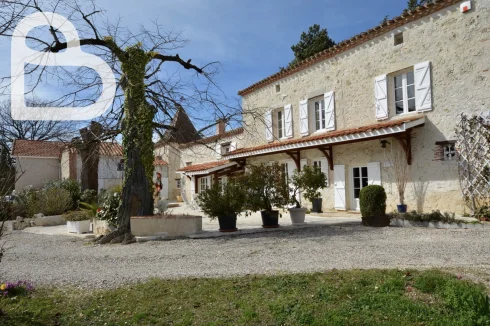French Income Tax Rates in 2015
Tuesday 07 October 2014
The government have announced that they are to abolish the lowest rate of income tax, thereby taking several million households out of the tax net.
POSTSCRIPT: For more up to date information on rates readers are invited to refer to our article French Income Tax 2020.
Income tax in France in currently structured around six income bands, with rates that apply to the fractional income within each band.
The current bands and rates are as follows:
| Tax Band | Rate |
| Up to €6,011 | 0 % |
| €6,012 to €11,991 | 5.5 % |
| €11,992 to €26,631 | 14 % |
| €26,632 to €71,397 | 30 % |
| €71,398 to €151,200 | 41 % |
| From €151,201 | 45 % |
As can be seen from the table, the slice of income up to €6,011 is currently zero rated (a tax free allowance); it is the second band charged at 5.5% the government are now proposing to abolish.
In order that the benefits of this change are restricted to those on modest incomes, the government are proposing that the income threshold for the new second 14% band of income tax be lowered.
Whereas currently the threshold for this band starts at €11,992, next year it will start at €9,691.
Assuming a small inflationary increase in the thresholds, the tax bands and rates for 2015 (2014 income) might then be as follows:
| Tax Band | Rate |
| Up to €9,690 | 0 % |
| €9,691 to €26,764 | 14 % |
| €27,765 to €71,754 | 30 % |
| €71,755 to €151,956 | 41 % |
| From €151,956 | 45 % |
The result of these changes mean that any household with net taxable income per household 'part' (slice) no greater than €9,690 will pay no income tax.
Accordingly, a couple (two parts) will be exempt if their net taxable income is less than €19,380.
For those whose income is greater, there is unlikely to be any impact, as the reduction in the income threshold for the third 14% band is compensated by the increase in the zero rated band. In addition, the discount that is applied to those who are liable for only a small amount of income tax is to be increased.
It is important to point out that these tables do not mean that if your income is, say, €25,000, it will all be charged at the rate of 14%. These rates apply to each fractional slice of income for each part of the household.
Example: Assume a household of two adults on a joint net taxable income of €30,000. In the first place their income is divided into two parts of €15,000. Each part is then be taxed on a fractional basis using the tax bands. The first €9,690 of each part is zero rated, and the remainding €5, 310 of each part then charged at 14%. The tax payable by each is then multiplied by two to give the total tax payable.
In practice, only around 14% households in France pay any income at the next rate of 30% and less than 1% pay at the rate of 45%.
Indeed, less than half of all households pay any income tax in France, a peculiar exception française. It is a position that is coming under increasing criticism amongst commentators in France, as it imposes greater pressure on the contribution from other taxes, such as VAT and social charges, which, unlike income tax, are not progressive.
Social Charges on Pension Income
Currently, those who pay little or no income tax pay social charges (Contribution Sociale Généralisée - CSG) on their pension income at the rate of 3.8%, as opposed to the standard rate of 6.6% on pension income.
Several hundred thousand households benefit from the reduced rate of social charges simply by virtue of tax credits to which they may be entitled (domestic help, investment property), despite the fact that they would otherwise be obliged to pay at the standard rate.
Accordingly, from 2015 the government are proposing to change the basis on which entitlement to the lower rate becomes possible, by assessing income prior to the deduction of the tax credits.
The income threshold at which households will become liable for social charges at the standard rate will be €13,900 per part, using the revenu fiscal de référence as the threshold figure.
By this change they consider that 700,000 additional households will benefit from the reduced rate, although around 460,000 will pay at the higher rate.
The government claims the change is fiscally neutral.
Parliamentary Approval
Next Article: Early Retirees Health Cover
Thank you for showing an interest in our News section.
Our News section is no longer being published although our catalogue of articles remains in place.
If you found our News useful, please have a look at France Insider, our subscription based News service with in-depth analysis, or our authoritative Guides to France.
If you require advice and assistance with the purchase of French property and moving to France, then take a look at the France Insider Property Clinic.





